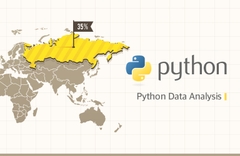-
질문 & 답변
카테고리
-
세부 분야
데이터 분석
-
해결 여부
해결됨
re.sub(
21.01.13 10:55 작성 조회수 215
1
/w를 사용하면 문자랑 숫자를 모두 변환이 가능한건가요?
답변을 작성해보세요.
1
박조은
지식공유자2021.01.13
안녕하세요.
\w는 문자를 의미하는데 정규표현식 문법입니다. 강의 자료에 있는 위키피디아 정규표현식 링크를 보시면 아래 다시 링크로도 보실 수 있는데요.
[정규 표현식 - 위키백과, 우리 모두의 백과사전](https://ko.wikipedia.org/wiki/%EC%A0%95%EA%B7%9C_%ED%91%9C%ED%98%84%EC%8B%9D)
위 링크에서 메타문자 관련 내용만 가져왔어요. 메타문자에서 \w는 문자를 의미하게 됩니다.
정규표현식은 강의에서 언급한 것처럼 책 한 권으로 나올 정도로 배울 내용도 많고 일종의 프로그래밍 언어라 볼 수 있는데요.
외우기 보다는 위키 문서 등을 참고해서 사용하시는 걸 권장해요.
아래 예시는 파이썬은 아니지만 대부분의 프로그래밍 언어에서 정규표현식을 지원하고 심지어 엑셀에서도 지원하기 때문에 아래 문서를 참고해서 활용해 보시면 좋을것 같습니다.
그래서 \w문법을 이해하기 보다는 문서를 참고해서 활용하는 방법으로 접근하는 걸 추천합니다.
기억하기 쉽게 \w를 문자로 이해한다면 word의 약자로 기억해 주세요.
| 메타문자 | 설명 | 예시[11] |
|---|---|---|
. |
일반적으로 새 줄을 제외한 모든 어떠한 문자열과도 일치한다. |
|
( ) |
일련의 패턴 요소들을 하나의 요소로 묶는다. 괄호 안의 패턴을 일치시킬 때 $1, $2, ... 중 하나를 사용할 수 있다. |
|
+ |
1번 이상 발생하는 패턴과 일치시킨다. |
|
? |
0~1번 발생하는 패턴과 일치시킨다. |
|
? |
|
|
* |
0번 이상 발생하는 패턴과 일치시킨다. |
|
| {M,N} | 최소 M번, 최대 N번 발생되는 패턴과 일치시킨다. |
|
[...] |
가능한 문자열의 집합과 일치시킨다. |
|
| |
가능성 있는 항목들을 구별하여 선택한다. |
|
\b |
|
|
\w |
"_"를 포함한 영숫자를 일치시킨다. |
|
\W |
"_"를 제외하여 영숫자가 아닌 문자열들과 일치시킨다. |
|
\s |
공백 문자와 일치시킨다. |
|
\S |
공백을 제외한 어떠한 것이든 일치시킨다. |
|
\d |
숫자를 일치시킨다. |
|
\D |
숫자가 아닌 항목을 일치시킨다. |
|
^ |
줄이나 문자열의 시작점과 일치시킨다. |
|
$ |
줄이나 문자열의 끝과 일치시킨다. |
|
\A |
문자열의 시작점과 일치시킨다. (내부 줄이 아닌) |
|
\z |
문자열의 끝과 일치시킨다. (내부 줄이 아닌)[12] |
|
[^...] |
괄호 안의 항목을 제외한 모든 문자열과 일치시킨다. |
|
0
0




답변 3